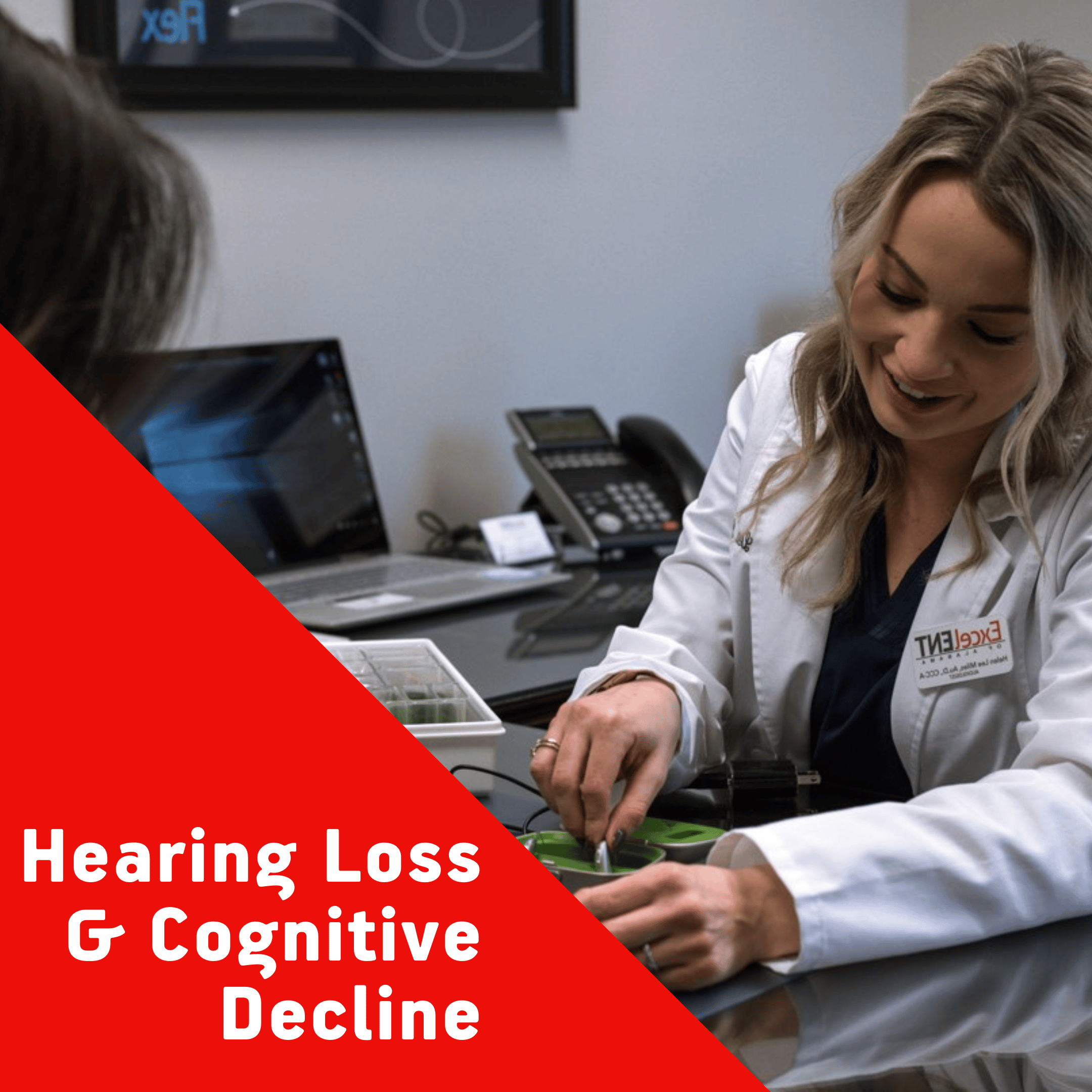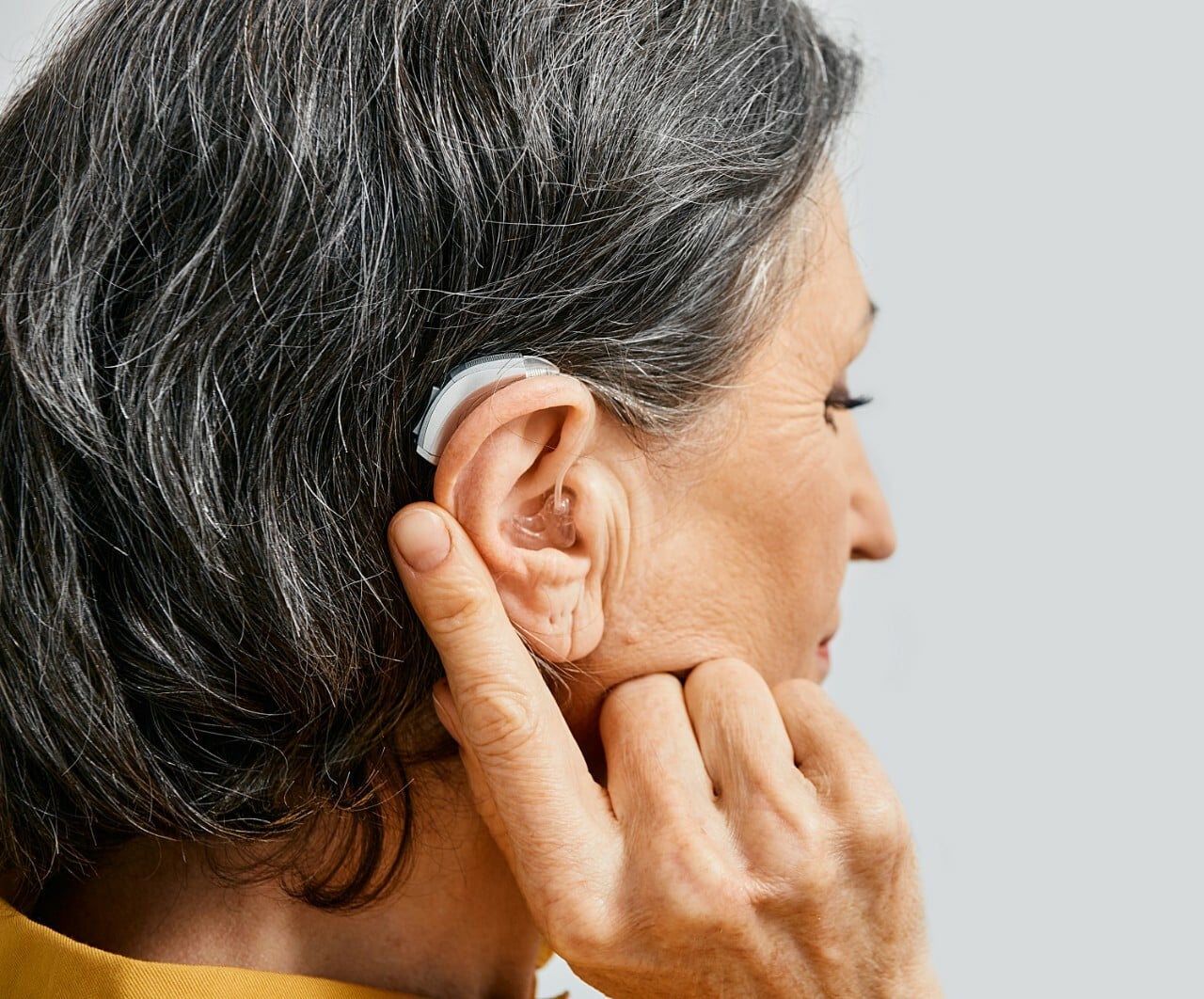That lump-in-the-throat feeling can show up out of nowhere—tight, persistent, and impossible to ignore. It…

Hearing Loss & Cognitive Decline
Hearing Loss & Cognitive Decline
There are many risks associated with hearing loss that can negatively affect quality of life. One such factor is that people who have hearing loss are more at risk of experiencing cognitive decline. Those with more severe degrees of hearing loss are at even greater risk.
At ExcelENT, we do not test for cognitive decline so it’s hard to say to what extent we come into contact with it on a daily basis. However, with more and more research coming out about the associations between hearing loss and cognitive decline, it is a conversation that we have with patients very often, and it’s a topic that we feel is important to cover in this article.
The Connection Between Hearing Loss & Cognitive Decline
First, let’s define cognitive decline. This is when a person experiences worsening symptoms related to memory, learning new things, concentrating, or making decisions that affect their everyday life. Dementia is often the result.
Isolation and withdrawal from social activities are known for being associated with an increased risk of dementia. If someone is having a hard time understanding their friends and family due to hearing loss, they will often choose not to participate fully, or they remove themselves from these situations altogether. This leads to more social isolation.
Another factor that contributes to cognitive decline for those with hearing loss is the increased listening effort they deal with. They are having to work harder to hear and understand which uses more of their cognitive resources.
Some estimates show that people with hearing loss can be up to 5x more likely to develop cognitive decline/dementia. These estimates vary across different studies. Many studies have looked more at hearing loss and its association with cognitive decline in the older adult population. However, some more recent studies have reported that those with the highest risk of dementia were adults with middle-aged onset of hearing loss.
Can We Treat Hearing Loss to Improve Cognitive Decline?
Again, we do not do any formal cognitive testing at ExcelENT, but it is something we are aware of as clinicians. We pay attention to certain aspects that could point to possible cognitive decline, such as:
- Inappropriate reactions to the environment
- Difficulty with word finding
- Issues with recall/memory
A history of falls and head injury can also indicate a greater risk for cognitive changes.
We know that genetics play a strong role in the risk for developing dementia. However, different lifestyle aspects can be changed to delay its onset, such as management of smoking, hearing loss, obesity, and diabetes.
Hearing Aids
Some studies have shown that hearing aid use can slow the rate of cognitive decline. It has been shown that those who wear hearing aids have better cognition than those with hearing loss who do not wear hearing aids.
Overall, hearing aids can greatly improve the quality of life for all patients even those who are not experiencing cognitive decline. It allows them to hear more of the conversations that are important to them such as those with family members, friends, healthcare providers, etc.
With hearing aids, they are able to stay connected to the world around them rather than withdrawing away from social situations. This can also prevent them from feeling like a burden to other people. The improved ease of listening is huge for many reasons. They don’t have to put in as much cognitive effort to hear and understand speech, which can help improve their overall cognitive function.
Discover how the team at ExcelENT of Alabama can help find the right hearing aids that may improve cognitive decline.
If you or your loved one are experiencing hearing issues, Dr. Smith can help. Whether hearing loss is related to cognitive decline or not, she is expertly trained in diagnosing hearing problems, and finding solutions. Schedule an appointment online, or call to discuss coming in at a time that’s best for you: 205-988-6858.


